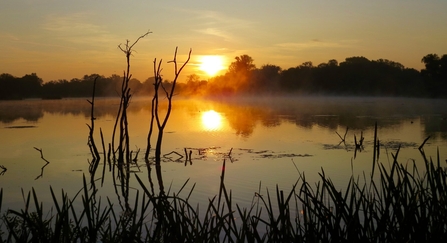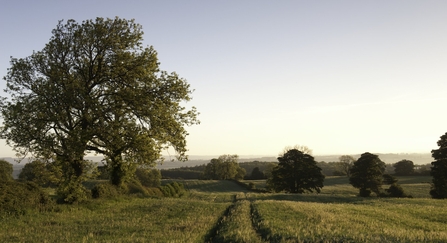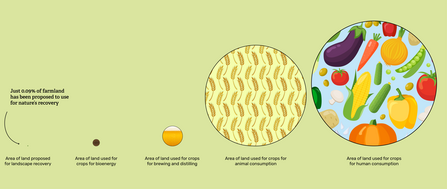This is a game-changing investment for our wildlife at a time when the UK is rated one of the most nature-depleted countries on the planet. More than 40% of species in the UK are in decline and over 15% are threatened with extinction.
This fund will invest in projects across the UK, including Atlantic rainforests and a coast-to-coast nature corridor following Hadrian’s Wall, bringing nature back into people’s lives and providing communities with ‘nature-based solutions’ like flood resilience, clean rivers and seas, and access to green space. The programme is also designed to help the UK achieve its existing target of protecting at least 30% of land and sea by 2030. Currently just 10.6% of land in the UK is protected for nature, and more than half of that area is in poor condition, so it is clear that some land not managed for wildlife will need to be 'rewilded'.
But, is this compatible with ensuring our food security? Some commentators fear that placing land in recovery for nature will reduce food production in the UK, and offshore our environmental footprint to other countries. Such concerns can fuel division across the farming and land management spectrum, but it is wrong to suggest that there is a binary trade-off between food and nature.
Sustainable food production in the UK needs nature – it needs healthy soils, clean and plentiful water, and thriving insect populations because they are the foundation of farming. The UK Government’s own Food Security Report in 2021 found that the main threats to UK food security are climate change and ecological breakdown. These are no longer abstract threats confined to a post-apocalyptic future, but are already having a significant impact on food production in the UK. The long sweltering summer of 2018, the warmest on record, saw onion yields down 40%, carrot yields down 25% and potato yields down 20%. The summer of 2022 was as hot again, with areas of the UK receiving less than 50% of their typical summer rainfall.
It is important to note this is not normal. Four of the five warmest summers on record for England have occurred since 2003. The increasing effects of climate change will pose ever greater risks to agriculture. A healthy and thriving natural world is essential to support a resilient food system. For example wildlife-rich wetlands which hold water back to prevent flooding in times of heavy rainfall as well as keeping water in the landscape during periods of drought, or bees and other pollinators which provide crop pollination benefits of £1.8 billion each year.




